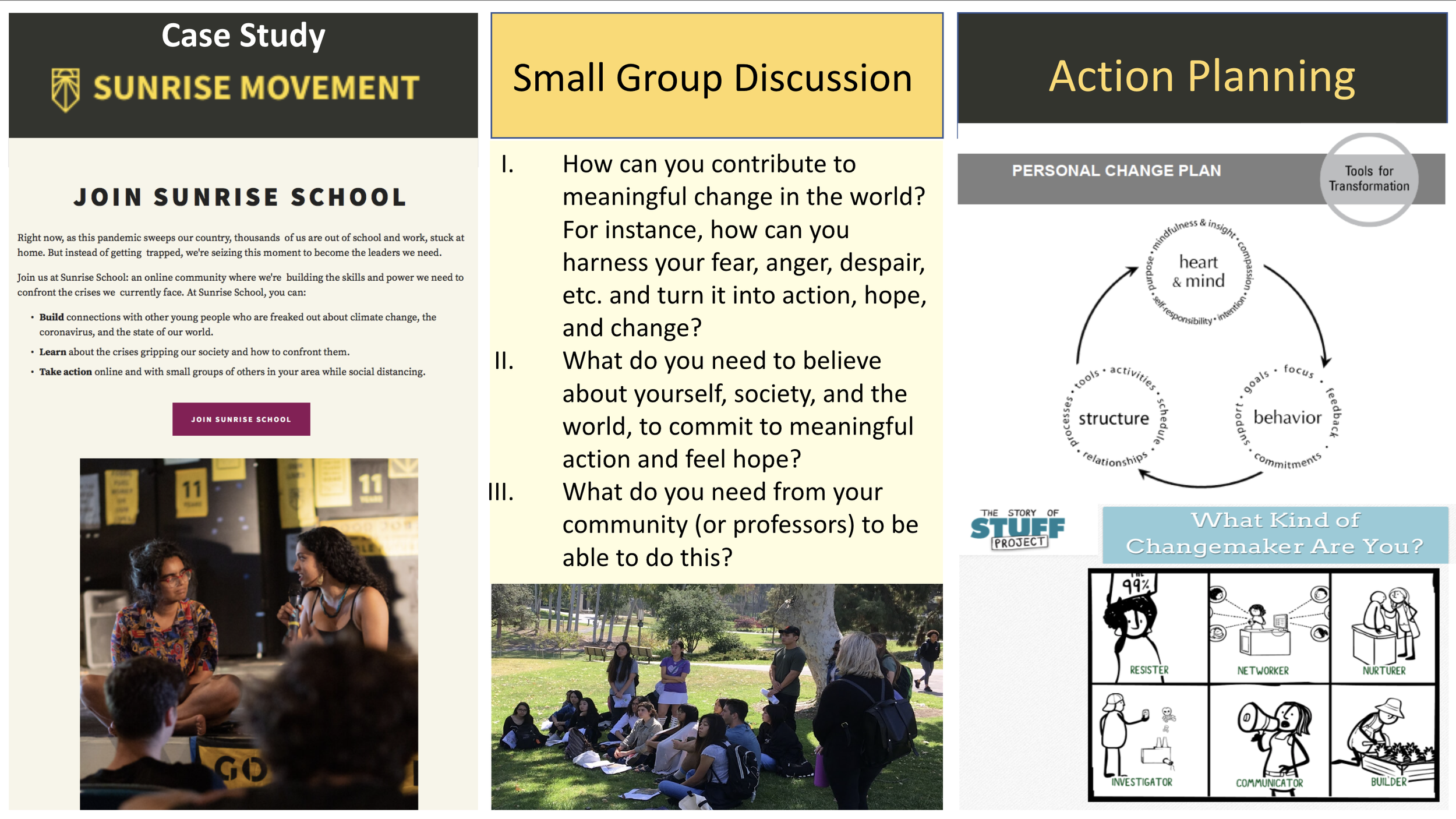
Jessica D. Pratt
From Existential Crisis to Action Planning – Building Individual and Community Resilience
About the author
Jessica Pratt is a community ecologist and teaching professor in the Department of Ecology and Evolutionary Biology at the University of California, Irvine. She is broadly interested in the application of ecological theory to environmental problem-solving, what some might call Conservation Science, and in effective pedagogy to train the next generation of environmental leaders and Earth stewards. She primarily teaches courses in the undergraduate Minor in Global Sustainability and the Masters in Conservation and Restoration Science program.
Dr. Pratt’s research interests are motivated by a deep desire for improved environmental literacy in K-12 education, greater self-efficacy and transfer of knowledge to action in our emerging environmental leaders (e.g. college students), and increasing diversity and representation of minoritized groups within education and the environmental sciences. Dr. Pratt’s current research examines the affective dimensions (i.e. emotions, moods, attitudes) of learning and working in the environmental and climate justice space. She seeks to understand the emotional responses that students have to learning about the state of the environment and how faculty can best address these emotions in the classroom. Through her research and teaching, she hopes to develop effective approaches to teaching about planetary crises while also instilling critical hope, emotional resilience, and a determined self-efficacy in her students.
When not working, Jessica can be found hitting the trails with her puppies, out on the soccer field with her kiddos, cooking from her home garden, on her yoga mat, or tucked in with a good book and cup of tea. All of which are effective coping strategies for her own ecological grief and climate anxiety.
Quote from the chapter
In our assessment of this lesson module, the majority of students felt that this lesson helped them develop better mechanisms to cope with their emotional responses to climate change, and 67% of students felt they could better turn their emotions into action. Finally, 89% of students agreed that this lesson was effective and impactful.
Links to additional resources
Greenscore Podcast interview, Climate Anxiety – Turning tough feelings into real change – in which Jessica describes her eco-grief research and coping strategies for climate anxiety.
Earth Day 2021 Webinar, Confronting Eco-grief and Climate-anxiety in the Undergraduate Classroom – in which Jessica presents her approaches and research on the effectiveness of addressing these topics in her classes.
Earth Day 2022 Webinar, Let’s Learn – the Connection of Nature and Wellbeing – in which Jessica presents research on the benefits nature to human wellbeing.
Downloadable materials
Mini-lecture on Eco-grief, Climate-anxiety and the Student Experience (editable powerpoint with notes). This is the mini-lecture Jessica uses in the classroom module described in the book chapter.
Chapter module learning goals
Class structure as outlined in the chapter module
Student testimonials
Student responses to the question What can professors do to effectively confront eco-grief in the classroom?
Balance bad news with solutions and positive developments, always ending on the positive.
Build community and create space for informal discussions.
Acknowledge emotional responses & discuss mental health.
Teach coping strategies.
Share personal stories.
Share clear and meaningful individual actions with students, including volunteer or activism opportunities.
Promote community engagement (require it!)
Contact details
Jessica is interested in speaking to live audiences. You can contact her via this email.
Jessica’s personal website: https://faculty.sites.uci.edu/prattecology/.



